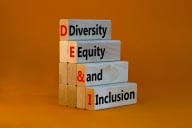You have /5 articles left.
Sign up for a free account or log in.
Did you ever say a Hail Mary before an exam? How about a Buddhist chant on a dorm room loft? Analysis of this year’s National Survey on Student Engagement sheds light on how the religious and spiritual behavior of students correlates with their engagement and progress. A major conclusion, according to its researchers, is that students who frequently engage in spirituality-enhancing practices also participate more in a broad cross-section of collegiate activities.
"The bottom line is that these students are more engaged across the board than average students in range of interesting activities," says George Kuh, director of the survey as well as the Indiana University Center for Postsecondary Research. "They do a variety of things that are known to be positive contributors to the overall college experience."
In fact, students who participate frequently in spirituality-enhancing activities tend to exercise more, attend cultural events more often, and are more likely to perform community service. They also report being "somewhat more satisfied" with college and have a more positive view of the out-of-class environment. Researchers offered a broad definition of spirituality, including everything from regular attendance at religious services to private meditation.
John Kraft, managing editor of The Purdue Exponent, says that through covering various religious-focused events around campus, he’s noticed that those who take part in the events also tend to be “highly active” in student organizations. Although he himself doesn’t identify as spiritual or religious, he says that “many to a majority” of classmates are, but they don’t necessarily talk about it all the time.
At The Nevada Sagebrush, senior editor Marc Carig says that the number of students at the University of Nevada at Reno joining Christian groups over the last five years has “skyrocketed.” He indicates that these students are involved in many aspects of campus life and seem to view religion as “just one component of their complicated selves.” “Remember, too, that Reno’s a small town that leans left politically,” he says.
Koh says that many in academe have stereotypes of religious and spiritual people that could lend to skepticism of the survey's findings. “Faculty members often worry that students who arrive at college with religious beliefs are preconditioned to resist a ‘liberal learning’ curriculum and may graduate without seriously re-examining their beliefs and values,” he says.
But analysis of survey data indicates no evidence that spiritual practices have negative effects on other desirable activities, such as studying, level of reflection, or extracurricular involvements.
“Students today are engaged and very interested in some of the larger questions involving the meaning and purpose of life -- interior aspects of development,” says Jennifer Lindholm, project director of the Spirituality in Higher Education Program, at the University of California at Los Angeles.
She doesn’t believe that the new findings mean that liberal education is somehow being compromised. “After all, the core component of a liberal education, in fact, is to know thyself,” says Lindholm. “It’s important to note, too, that not everyone who thinks of themselves as a spiritual person also thinks of themselves as religious. The core component of a liberal education -- who am I? -- is also a core component of the spiritual aspects in our lives.”
Dave Baron, president of the student body at the University of Notre Dame, personally believes that “a religious character pushes academic discussion to another level,” although he notes that there is constant debate surrounding this issue on his largely Roman Catholic campus.
For the Indiana researchers, all was not rosy when it came to religious students. “As expected, students at faith-based schools worship much more frequently and report deepening their sense of spirituality to a greater degree than students at other institutions,” according to the report. “However, students at faith-based colleges have far fewer serious conversations with students whose religious, political, and personal beliefs and values differ from their own.”
“Students here do have to go out of their way to learn about other religions and even different aspects of Christianity,” Baron says of his experience at Notre Dame. “However, in terms of politics, there are lots of students on the left and lots on the right -- the abortion issue is a heated topic here.”
There are several other key findings from the new report:
- Forty-five percent of all college seniors took at least one course from another postsecondary institution prior to enrolling at their current institution. According to Kuh, this is a concern because transfer students tend to participate less in activities that enrich their learning, such as volunteering.
- Fifty-four percent of all first-year students who took a first-year seminar were more likely to use campus services, were more satisfied with college, and gained more in terms of personal and social development.
- African-American and Asian-American students are the least satisfied with their college experiences.
- Thirty percent of first-year students reported studying just enough to get by.








